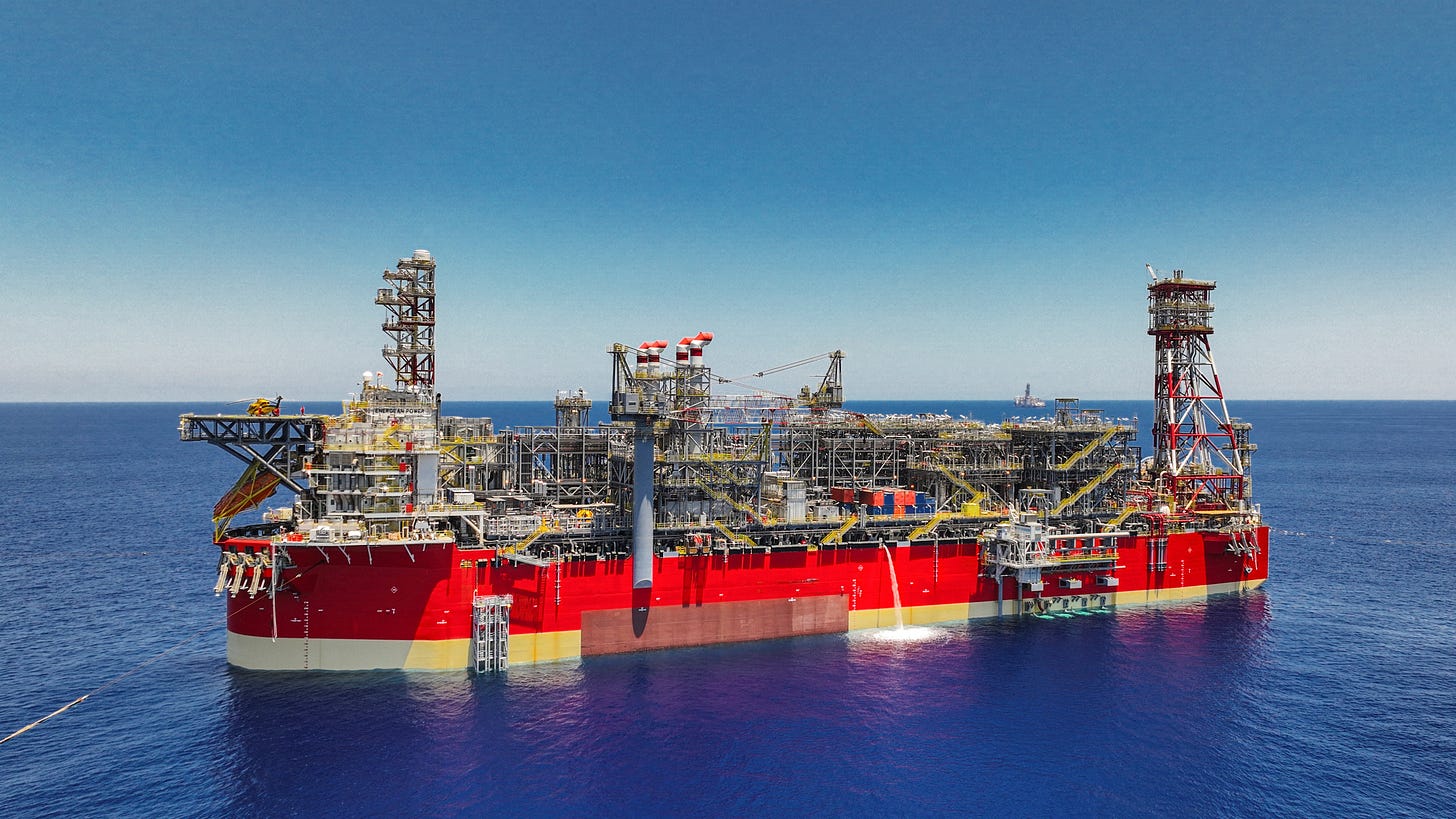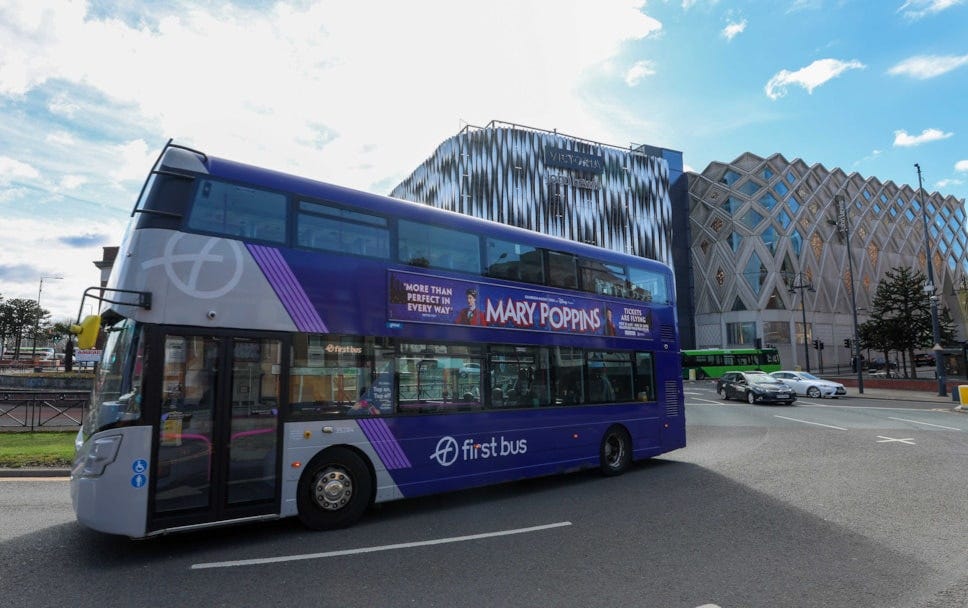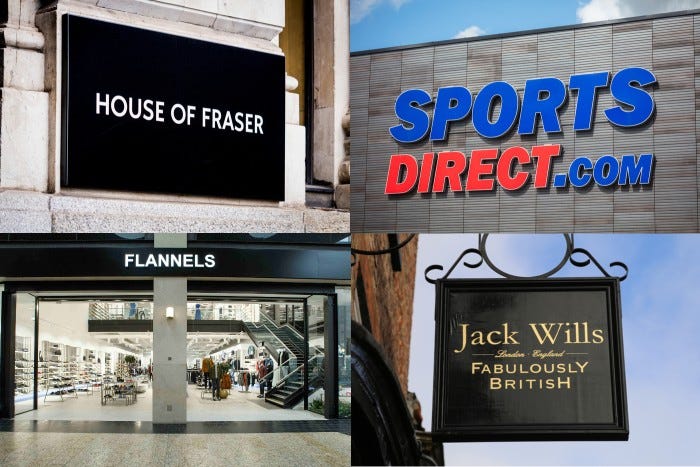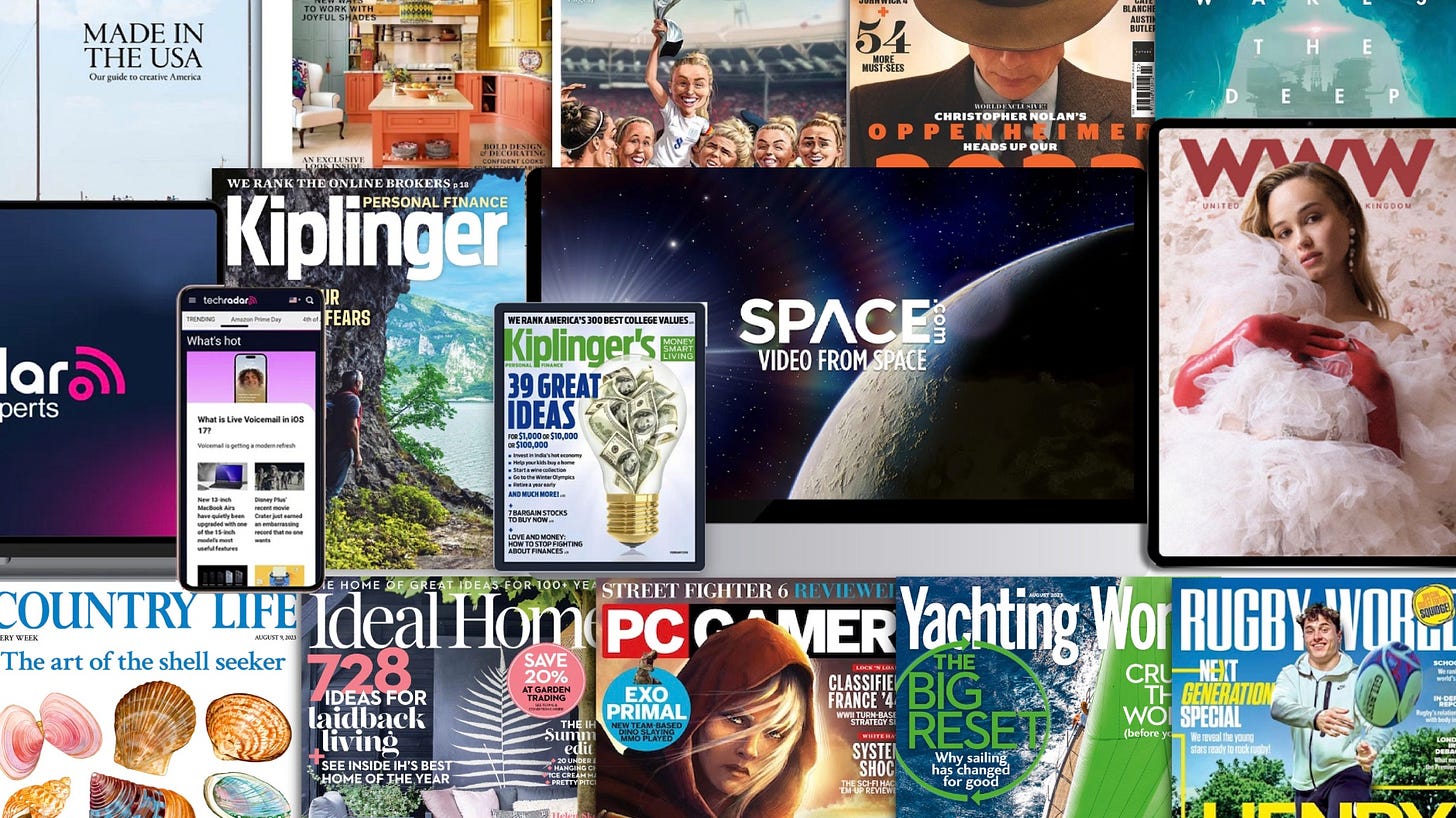FTSE 250 A to Z: 🟢 Elementis 🟡 Energean 🟡 FirstGroup 🔴 Frasers 🟢 Future
Anti-perspirant additives, the largest gas producer in Israel, buses and trains, the UK's most loved to hate entrepreneur, and Horse & Hound meets GO COMPAAAARE
Turning to something a bit different, I’m restarting my (soon to be multi-year) A to Z tour through the oft overlooked FTSE 250 index. Below you’ll find quick thoughts on each company, which I’m sharing as a starting point for anyone doing their own research or looking for new ideas. You can search the full list here. Going forwards I plan to mix up these UK investment ideas with more general economic, markets and policy commentary.
If you have thoughts on any of these companies - as a business, brand, or investment - I’d love to hear them in the comments below!
Jump to: Elementis | Energean | FirstGroup | Frasers | Future
🟢 ELEMENTIS (ELM)
Mkt cap: £938m | Revenue FY24: £738m | Net income FY24: £-47.8m | Latest price
Elementis is one of those industrial firms that can trace its origins back 150 years, but which has morphed into different shapes, sizes and names in the intervening period, transforming itself as a company every 20 to 30 years. Its focus now is specialty chemicals, split between two divisions – performance specialties and personal care – accounting for ~70% and ~30% of revenues respectively, with margins notably higher in personal care. Net income took a hit in 2024 from a large impairment charge related to a talc business, which was fully divested earlier in the year. Shareholders responded positively to the sale, along with a buyback programme. Elementis is a leaner, simpler business than it was a few years ago, with some ambitious financial targets to match, including targeting ROCE above 30%. One concern is that future momentum looks tied to operational improvement rather than top line growth, which has languished at about 1% per year over the last decade – and at some point, those operational improvements may reach their limits.
Last updated: 4 September 2025
🟡 ENERGEAN (ENOG)
Mkt cap: £1.71bn | Revenue FY24: $1.31m | Net income FY24: $188m | Latest price
Founded in 2007 as Aegean Energy SA, Energean is now the leading the gas exploration and production (E&P) company in the Eastern Mediterranean, with its Karish field comprising over 40% of Israel’s natural gas production. Since IPO in 2018 the company has continued to expand through a healthy dose of M&A, including acquiring the Karish and Tanin gas fields in 2019 and Edison’s oil and gas business that same year. I’m generally wary of the volatility of the E&P business, but Energean is interesting in that 80% of 2024 production came from its Israeli and Egyptian assets, backed by long-term off-take agreements. These contracts all contain price floor and take-or-pay provisions, meaning Energean is guaranteed to sell a set amount at a minimum price, limiting downside risk (absent any counterparty defaults). The contracted revenues support a steady dividend but also a debt pile of over $3 billion, built up to finance previous acquisitions. Net gearing of over 400% is punchy but manageable so long as current production and cash flow projections are met. I’m not sure you can call this a UK company, but it could be interesting if you’re looking for European energy exposure.
Last updated: 8 September 2025
🟡 FIRSTGROUP (FGP)
Mkt cap: £1.21bn | Adjusted revenue FY25: £5.01bn* | Net income FY25: £128m | Latest price
*Revenue excluding that element of DfT TOC revenue, and related intercompany eliminations, where the Group takes substantially no revenue risk
Across its First Bus and First Rail divisions, FirstGroup is one of the largest private sector operators of public transport in the UK, carrying almost 2 million passengers a day, meaning that almost 2 million people a day moan about it. Department of Transport Train Operating Contracts (TOCs) used to form the bulk of group revenues, but the big change in recent years has been the transfer of these contracts from private operators to the public sector (started under the Tories, continued under Labour). Hence FirstGroup’s remaining TOCs will soon cease with the group dependent on bus revenues (74% of adjusted revenues in FY 2025) and “open access rail”, in which private operating companies use Network Rail tracks but receive no direct subsidies from the taxpayer. A profits beat for 2025 plus the approval of new open access rail routes has given the stock good recent momentum – although it’s worth noting that the RMT does NOT like open access and the government has made mutterings about curbing its use. For now, I’m neutral, wondering if the stable business profile and recent performance offsets any future risks from policy change.
Last updated: 9 September 2025
🔴 FRASERS (FRAS)
Mkt cap: £3.2bn | Revenue FY25: £4.9bn | Net income FY25: £293m | Latest price
Frasers is the holding company for SportsDirect and all the other previously bankrupt retail businesses hoovered up by Mike Ashley, Britain’s favourite love-to-hate rags-to-riches entrepreneur. Despite Ashley stepping down as CEO in 2023, this remains a family affair, with his son-in-law leading day-to-day operations and the family still owning more than 70% of shares. A lack of comfort in its corporate governance has been one reason for a persistently low valuation, as well as an increasingly complex operating structure, which includes cross holdings in other companies. Credit to Ashley for building a multi-billion-pound business from scratch, but I’m just not sure I’m comfortable with the governance or have much appetite to look in detail at a discount retailer.
Last updated: 9 September 2025
🟢 FUTURE (FUTR)
Mkt cap: £746m | Revenue FY24: £788m| Net income FY24: £77m | Latest price
Being a Future shareholder from 2019 through August 2021 was one great ride, as this media company went on an acquisition tear, revenues quintupled, and investors bought into it deftly transitioning to a digital era. Being a Future shareholder since then has been gut wrenching to say the least – a series of profit warnings, growth failing to meet expectations, and investor capitulation. Things have stabilised a bit in the last year or two and Future is now a somewhat diversified business that owns a portfolio of established media brands (including Marie Claire, Country House, Golf Monthly, Horse & Hound, Yachting World and MoneyWeek) and makes its money roughly equally from: selling digital advertising on online platforms; selling print and digital subscriptions to magazines; and earning commissions on insurance purchases via the GoCompare price comparison websites. Unsurprisingly, the magazine subscription business is in decline, and it’s digital advertising and GoCompare where growth lies. Future has EBITDA margins of over 25%, is highly cash generative, and since 2022 has been distributing cash to shareholders rather than burning it on flashy M&A. One concern is that both advertising and magazines revenues are highly cyclical, and right now both the US and UK consumer look to be weakening. Still, if this is priced in, and if the stock is still suffering from a loss of trust, it could be an interesting opportunity. There’s a new CEO in post since March 2025 and an investor webinar (available to all) at the end of September that I’ll use to take a deeper dive.








Victoria-
Your FTSE A-Z tour reminds me of my first overseas trip at HL, to London, appropriately. We visited with a small cap UK broker called Albert Sharp. UK small cap was replete with metal benders from the Midlands, insurance brokers and Marmite manufacturers, all undervalued, and almost all, appropriately so. It was a backwater, full of value traps!
Love your work and your writing! Very punchy!!
Best,
Alec